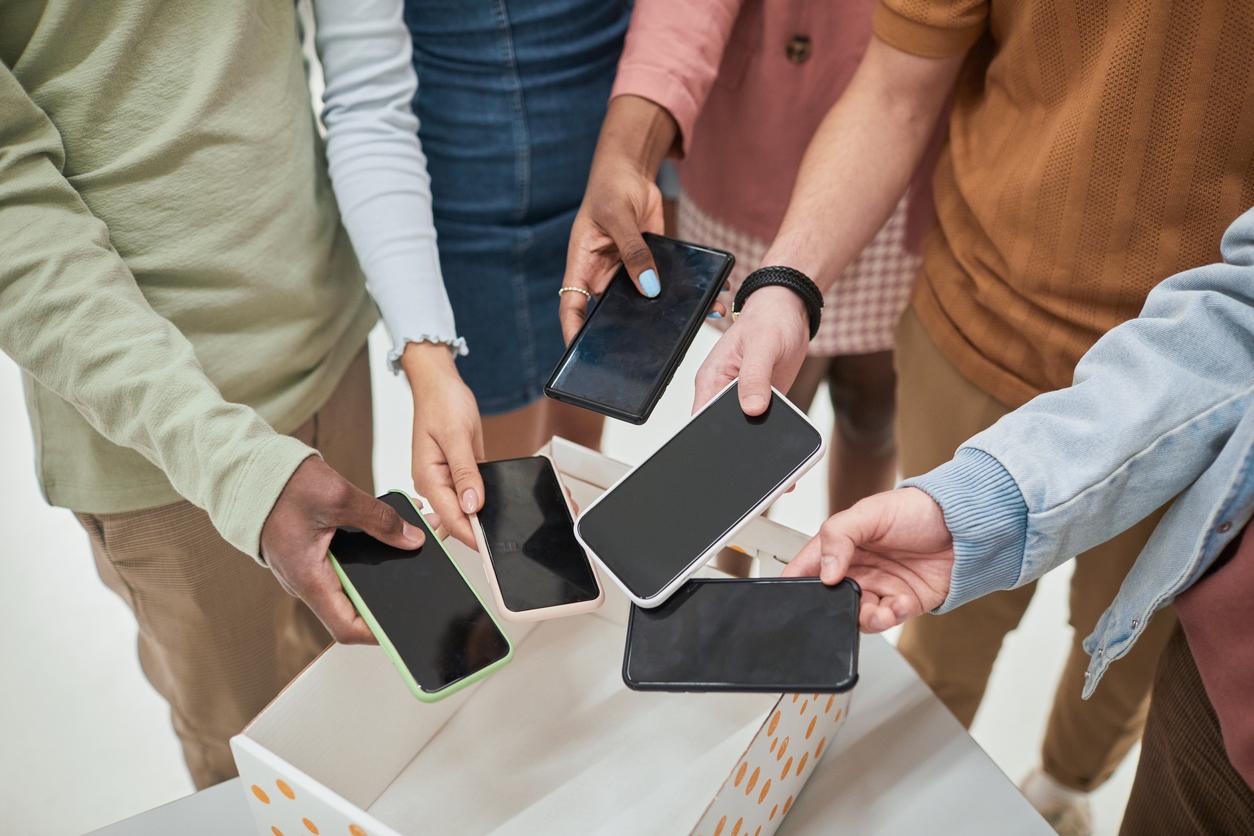Notifications, ringtones, emails … are all signs that show that yes, we are indeed hyper connected. It is for this reason that a new concept, named FOMO (Fear of Missing Out, or the fear of missing something) has emerged, symbolic of everything that social networks and the immediacy of the digital world have an effect on us.
According to Statista, in 2019, 16% of French people spent more than eight hours a day in front of a screen, an alarming figure! Here are 5 effects that we do not always suspect and which, however, betray our hyperconnectivity!
Sleep disturbance
When we know that sleep plays a capital role in the proper functioning of the body, it was natural to look into the question of its link with our hyperconnectivity. According to an INSV / MGEN survey conducted in 2019, 44% of French people surf the internet or watch television before sleeping.
The consequences: shorter and shorter nights, and less and less qualitative. Indeed, by blocking the production of melatonin, the light from the screens decreases the ability to fall asleep, and keeps our brain in a state of excitement. What to think twice before checking his emails at 11pm!
The advice to apply? Leave aside smartphones, tablets, computers … 1h30 before bedtime and wait until the next morning to consult his sms. Also ban laptops and smartphones from the bedroom or put them in airplane mode.
Eye fatigue
If your eyes hurt more and more at the end of the day, hyperconnectivity might not be innocent. This visual fatigue can be explained simply: the gaze remaining fixed on the screen, the eyes tend to converge more.
The advice to apply? Pick up screens and do 5-minute visual breaks at least once an hour to rest the eyes. Concretely, it is a question of moving the gaze of the screen, either by closing your eyes, or by looking far away.
A problematic sedentary lifestyle
Who says hyperconnectivity, also says adaptation of the body to better connect. Concretely, we tend to stay longer sitting (or lying) during the day, to consult messages or notifications.
However, a sedentary lifestyle is a significant factor in poor health, cardiovascular risks, diabetes and even certain cancers.
The advice to apply? A more thoughtful posture would then be to move away from your smartphone a few hours a day, at least!
Gradual weight gain
Consequence of sedentary lifestyle linked to hyperconnectivity: we do not move enough. Artificial light from screens, contrary to our environment, can also play a role in the development of weight disorders. In fact, researchers at the National Institutes of Health (NIH) analyzed the data of 43,722 women between 35 and 74 years of age over five years, and concluded that those who fall asleep in front of the television have a 30% increased risk of developing obesity.
The advice to apply? We cannot repeat it enough, maintaining daily physical activity is essential. Walking or bike, move daily is beneficial for fitness, health and well-being in general.
Pain from head to thumb
How many times a day do you unlock your smartphone? How many sms do you send? How many notifications are you viewing? The problem is, you’re often with your head down towards the screen, your chin facing your chest, and your neck flexing. You should know that the weight of our head increases with the inclination: in a position tilted forward by 60 ° the weight of our head increases to 27 kg, against 5 kg in the normal position.
The consequence ? This position can make your back problems worse and even lead to musculoskeletal problems. Over-straining the thumb can lead to the appearance of tendonitis, pain in the wrists or even in the shoulders, but also to cervical tensions also called “text-necks”.
The advice to apply? Use a hands-free kit to free your hands, avoid staying too long with your head tilted on your smartphone. When you experience discomfort or pain, relax by doing small circular motions with your neck, forward and backward shoulder rotations, and wrist rotations to mobilize your joints.
The smartphone wrinkle
More anecdotal, though, the smartphone wrinkle would be a new effect closely linked to hyperconnectivity. Indeed, the blue light present in our smartphones is responsible for premature aging of the skin, in the same way as UVA and UVB rays.
On the face and in particular the neck, more pronounced wrinkles could appear, probably because of the position of “lowered head” which one adopts while consulting his screen. All this remains to be proven, however.
Read also
- Why working on a Swiss ball is good for your health
- Sleep: 1 in 4 adolescents fall asleep with headphones on
- 5 good reasons to take an electric bike



















